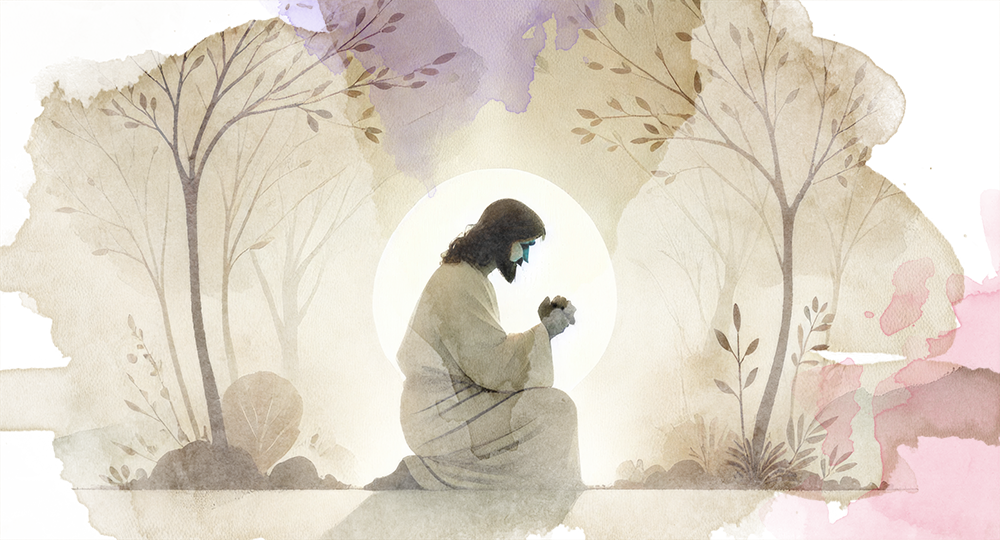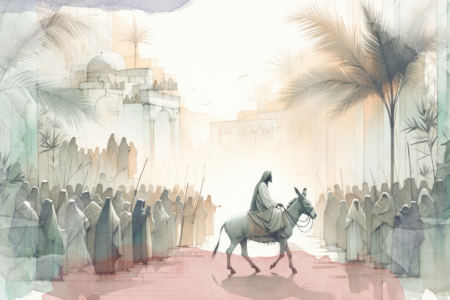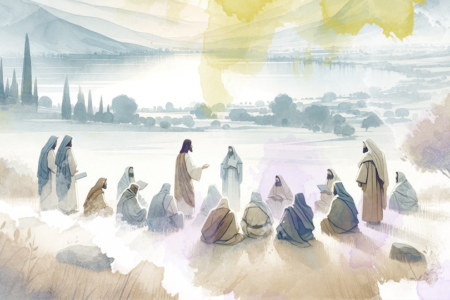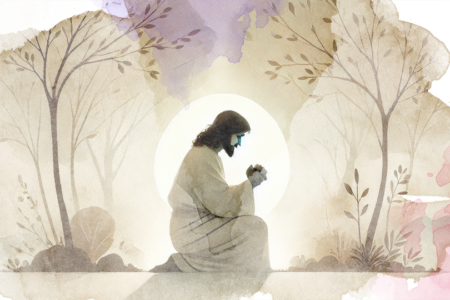The God-Man’s Symphony
Israel My Glory In Depth is a video interview series that explores the author’s motivation in writing their article.Like a composer conducting a score he wrote himself, Jesus orchestrated all the events of His death.
It has been said, if you do not accept Jesus as God, you must think Him either a lunatic or a liar. In his book Mere Christianity, the great C. S. Lewis (1898–1963) wrote,
A man who was merely a man and said the sort of things Jesus said would not be a great moral teacher. He would either be a lunatic—on the level with the man who says he is a poached egg—or else he would be the Devil of Hell. You must make your choice. Either this man was, and is, the Son of God, or else a madman or something worse.1
At the final meal Jesus ate with His disciples immediately before His death, He made His deity and sovereignty over events extremely clear: “I tell you before it comes, that when it does come to pass, you may believe that I am He” (Jn. 13:19).
He knew the end from the beginning; how long He would live; what He would accomplish; and how, when, where, and why He would die. He was neither a lunatic nor a liar. He was the God-Man who orchestrated everything.
The final meal was a Passover Seder held in an upper room in Jerusalem that Jesus selected in a miraculous way (Mk. 14:13–16). More transpired there than most people realize: Jesus made statements only God can make. Then, in the Garden of Gethsemane, He agonized over what He was about to face, as only a human being can do.
Communion and Covenant
At the Seder the night He was betrayed, Jesus told His disciples, “He who dipped his hand with Me in the dish will betray Me” (Mt. 26:23). “‘It is he to whom I shall give a piece of bread when I have dipped it.’ And having dipped the bread, He gave it to Judas Iscariot” (Jn. 13:26).
Yet, Jesus chose Judas: “I know whom I have chosen,” He said (v. 18). Earlier, He told them, “Did I not choose you, the twelve, and one of you is a devil?” (6:70).
That night, He also instituted the Lord’s Supper, or communion: “As they were eating, Jesus took bread, blessed and broke it, and gave it to the disciples and said, ‘Take, eat; this is My body’” (Mt. 26:26). Under the Levitical system, a portion of the sacrifices was eaten. Jesus was making the connection that He was the sacrifice.
Then He instituted the New Covenant God had promised the Jewish people centuries earlier through the prophet Jeremiah. The disciples knew all covenants were instituted by blood. “He took the cup, and gave thanks, and gave it to them, saying, ‘Drink from it, all of you. For this is My blood of the new covenant [cf. Jer. 31:31], which is shed for many for the remission of sins’” (Mt. 26:27–28; cf. Isa. 53:10–11).
Words of Comfort
After Judas left, Jesus spoke to the remaining 11 disciples, imparting many of His most comforting words—all of which point to His deity; and the disciples, who were Jewish, believed Him (Jn. 14—17). Otherwise, they would have thought Him insane and never would have remained steadfast in their faith until death.
Heaven. “In My Father’s house are many mansions; if it were not so, I would have told you. I go to prepare a place for you” (14:2).
Salvation. “I am the way, the truth, and the life. No one comes to the Father except through Me” (v. 6).
His Deity. “He who has seen Me has seen the Father. . . . Believe Me that I am in the Father and the Father in Me” (vv. 9, 11).
Prayer. “Whatever you ask in My name, that I will do, that the Father may be glorified in the Son” (v. 13).
The Holy Spirit. “I will pray the Father, and He will give you another Helper, that He may abide with you forever—the Spirit of truth” (vv. 16–17). “The Helper, the Holy Spirit, whom the Father will send in My name, He will teach you all things, and bring to your remembrance all things that I said to you” (v. 26). “He will convict the world of sin. . . . He will guide you into all truth” (16:8, 13).
His Resurrection. “A little while longer and the world will see Me no more, but you will see Me. Because I live, you will live also” (14:19).
His Return. “If I go . . . I will come again and receive you to Myself; that where I am, there you may be also” (v. 3).
Inner Peace. “Peace I leave with you, My peace I give to you; not as the world gives do I give to you. Let not your heart be troubled, neither let it be afraid” (v. 27).
Persecution. “If the world hates you, you know that it hated Me before it hated you. If you were of the world, the world would love its own. . . . But I chose you out of the world, therefore the world hates you. If they persecuted Me, they will also persecute you” (15:18–20).
“The time is coming that whoever kills you will think that he offers God service. And these things they will do to you because they have not known the Father nor Me” (16:2–3).
Trouble. “These things I have spoken to you, that in Me you may have peace. In the world you will have tribulation; but be of good cheer, I have overcome the world” (v. 33).
His Glory. Then Jesus prayed to the Father: “I have glorified You on the earth. I have finished the work which You have given Me to do. And now, O Father, glorify Me together with Yourself, with the glory which I had with You before the world was” (17:4–5). Either Jesus existed in glory with God “before the world was,” or He was delusional.
In Gethsemane
After the Passover, Jesus and the 11 apostles departed. They crossed “the Brook Kidron, where there was a garden, which He and His disciples entered” (18:1).
There, Jesus prayed to the Father, dreading the physical and spiritual anguish that awaited Him. In His humanity, He fell on His face and prayed, “O My Father, if it is possible, let this cup pass from Me; nevertheless, not as I will, but as You will” (Mt. 26:39).
In His deity, He knew He was about to experience something even worse than crucifixion: complete separation from the Father, as the Father poured out on Jesus all His wrath and punishment for sin for all humankind. “For He made Him who knew no sin to be sin for us, that we might become the righteousness of God in Him” (2 Cor. 5:21; cf. Isa. 53:5–6).
Jesus’ time in prayer must have been excruciating. Finally, He told the disciples, “The hour is at hand, and the Son of Man is being betrayed into the hands of sinners. Rise, let us be going. See, My betrayer is at hand” (Mt. 26:45–46). Despite the agony, Jesus stayed the course, as He was “the Lamb slain from the foundation of the world” (Rev. 13:8).
Like a composer conducting a symphony he wrote himself, Jesus orchestrated the events leading to His crucifixion, fulfilling the prophecies in His Word. Everything unfolded exactly as He had predicted.
We so often focus on the truth that “God so loved the world that He gave His only begotten Son, that whoever believes in Him should not perish but have everlasting life” (Jn. 3:16). The flip side is that Jesus so loved the world He willingly came. His sacrificial death was the tremendous price He paid to redeem lost humanity from the penalty of sin. And His resurrection is the tremendous guarantee we have that those of us who believe in Him will have eternal life.
As C. S. Lewis said, “You must make your choice.” Lewis made his: “Now it seems to me obvious that He was neither a lunatic nor a fiend: and consequently, however strange or terrifying or unlikely it may seem, I have to accept the view that He was and is God.”2
ENDNOTES
-
-
- C. S. Lewis, Mere Christianity (New York, NY: Macmillan, 1943), 56.
- Ibid., 57.
-








